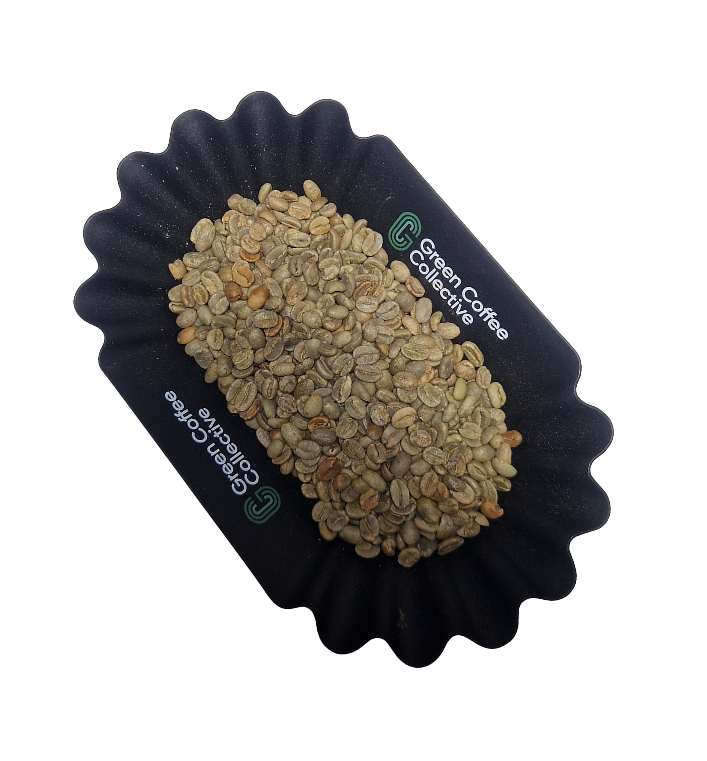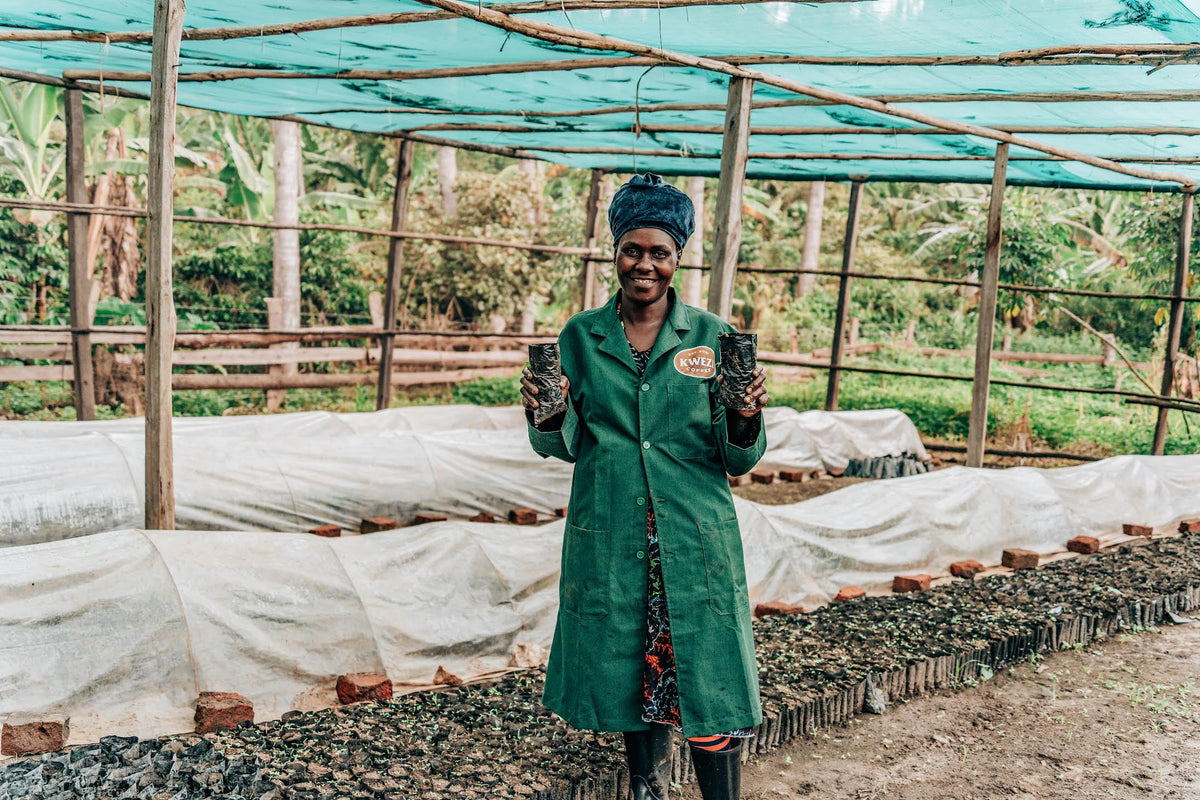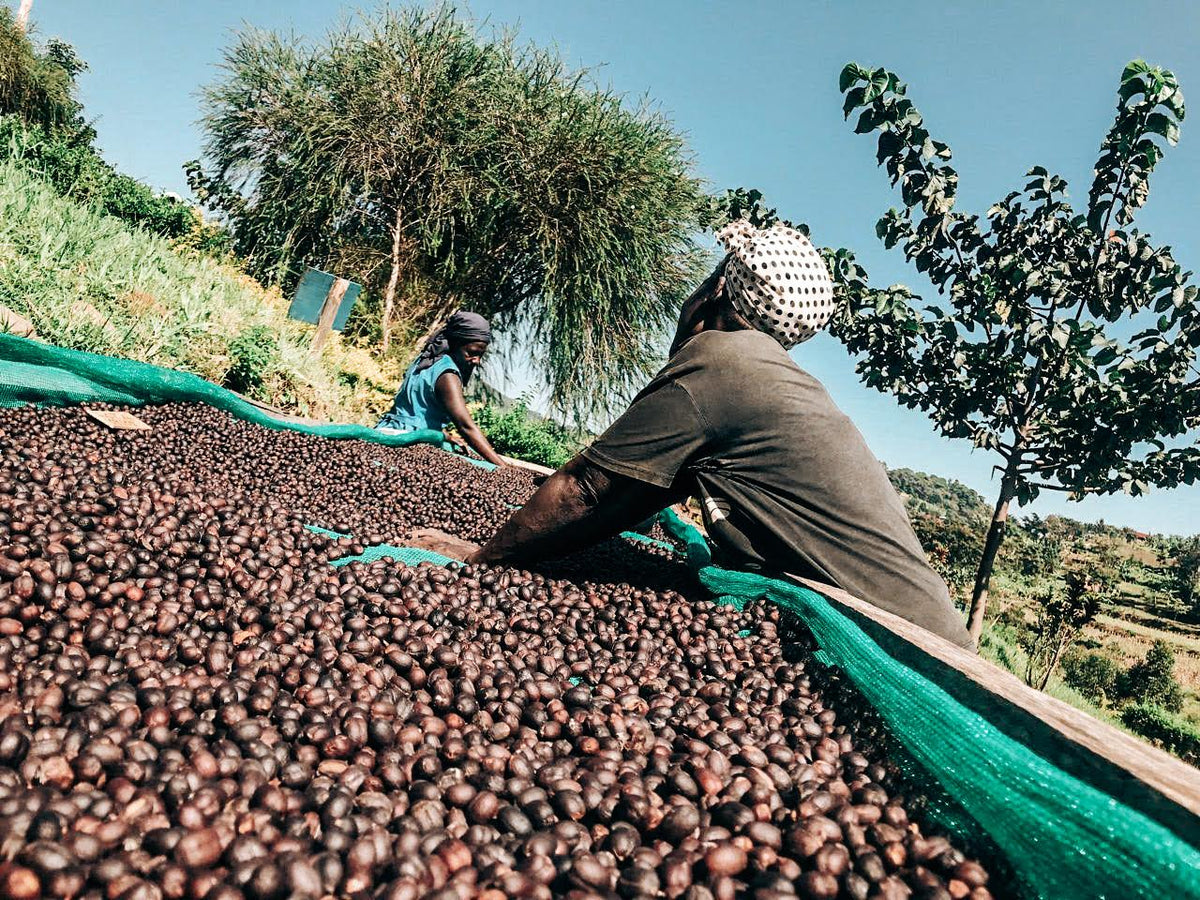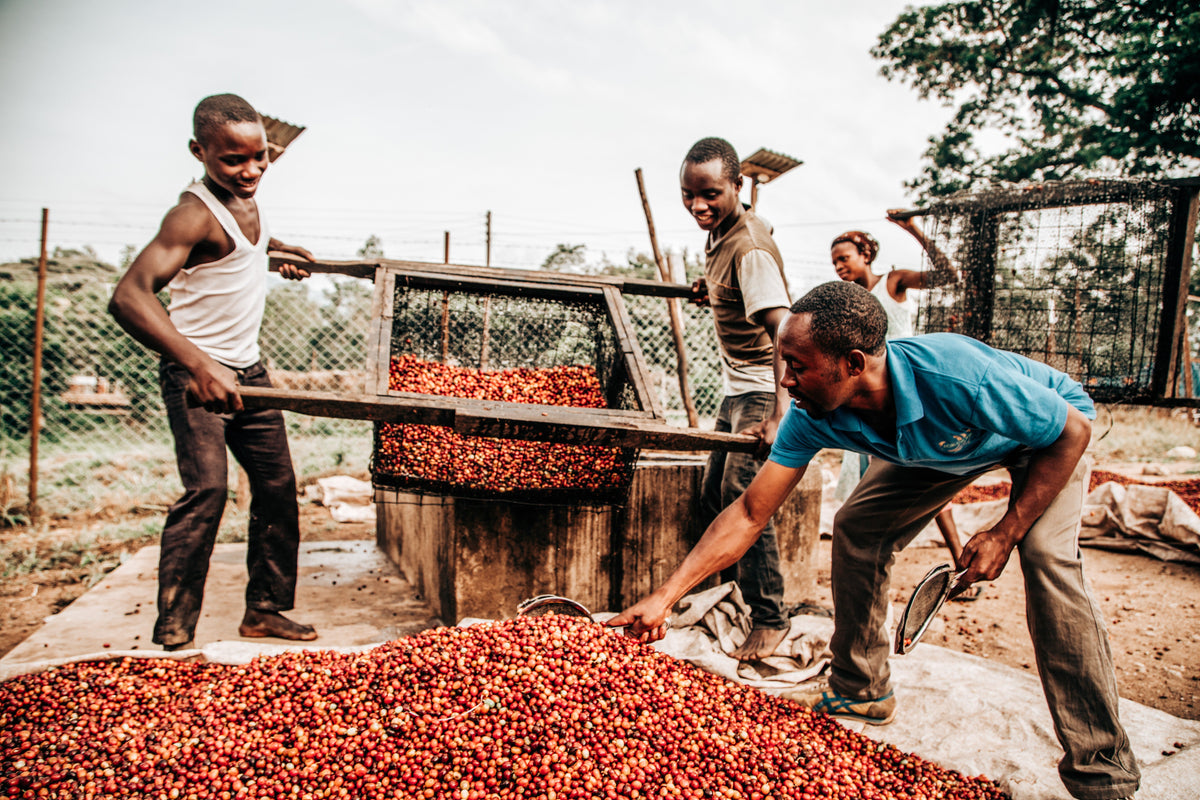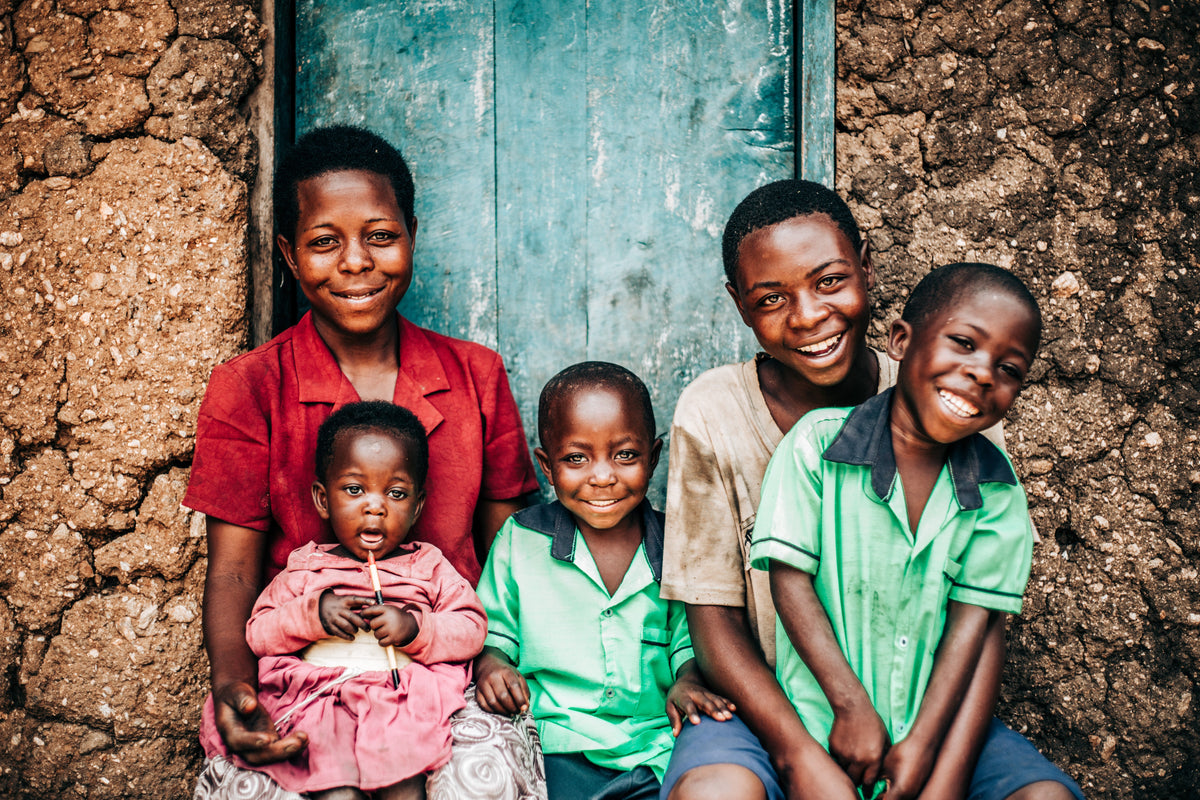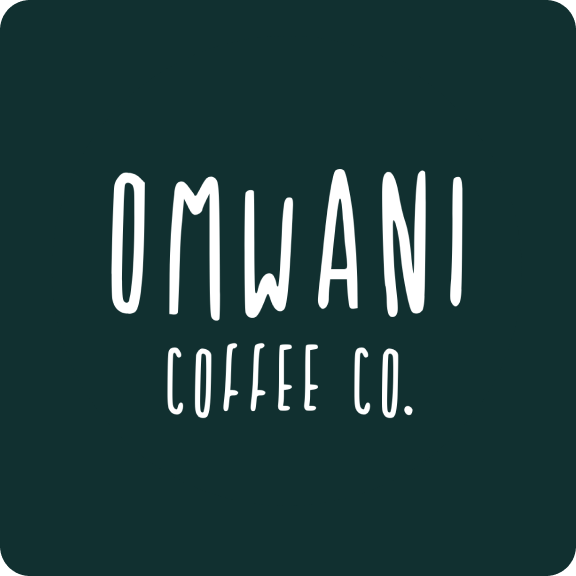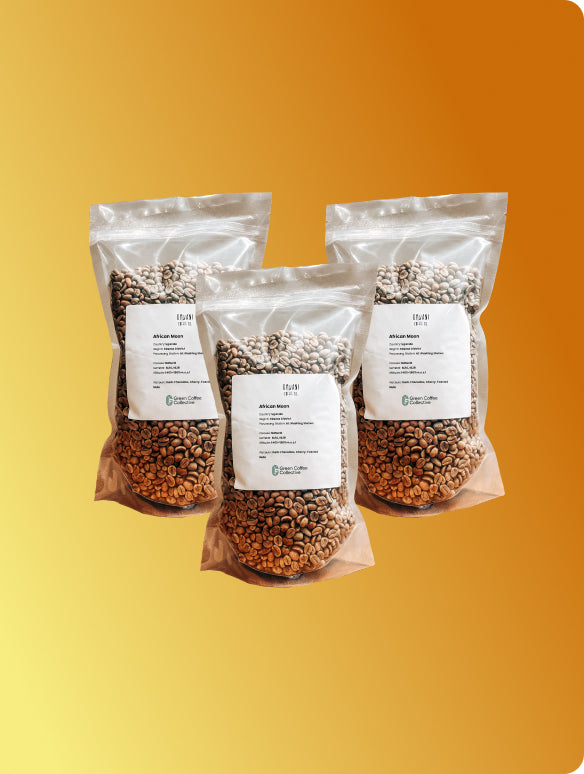-
Available now
In warehouse and ready to go, unless stated otherwise, our coffees are already landed through our network of partners
-
Pay in your preferred currency
We support +30 currencies, so pay in whatever format that suits you best.
-
Buy now, pay later
Relaxed payment terms to suit you, we offer interest free finance and extended payment terms
Popular Uganda Coffees
These unroasted Burundi coffees have great reviews and get a lot of attention on Green Coffee Collective.
-
African Moon
Cupping Score83.75Processing methodVarietalSL 14 , SL 28Main flavour notesDark Chocolate | Brown Sugar | Pecan | Cashew | PlumExplore nowIn Stock+20kg left -
Kwezi Natural - Drugar Premium
Cupping Score85.0Processing methodVarietalSL 14Main flavour notesFruity | Nutty | Honey | ChocolateExplore nowIn Stock+420kg left -
Bukonzo Dream
Cupping Score86.25Processing methodVarietalSL 14 , SL 28Main flavour notesStrawberry | Caramel | Milk Chocolate | Tropical FruitExplore nowOut of Stock
Quick stats about Uganda Green Coffee
-
Typical Ugandan coffee harvest periods
-
Key Uganda coffee producing regions
-
Most common Ugandan coffee varietals
-
Ugandan families who rely on coffee for income
-
Uganda's position in global coffee export rankings
-
Total 60kg sacks exported annually from Uganda
Top-rated Uganda Coffee for Home Roasting
The roasting community agree: these coffees are highly rated for quality, consistency and transparency
-
Example product title
Regular price £19.99
Regular priceUnit price / per -
Example product title
Regular price £19.99
Regular priceUnit price / per -
Example product title
Regular price £19.99
Regular priceUnit price / per -
Example product title
Regular price £19.99
Regular priceUnit price / per
Expert Coffee Producers from Uganda
Your guide to Uganda Coffee
-
History of coffee in Uganda
-
When is the best time to source Ugandan coffee?
-
How to buy and import coffee from Uganda?
-
Which type of Ugandan coffee is the best?
-
What is the status of coffee in Uganda?
Our Partners Sourcing Uganda Coffee
Your questions, answered
What is the Green Coffee Collective?
We’re a community of coffee producers and sourcing experts, all working together to make green coffee easy to access—whether you’re a hobby roaster at home or a professional roasting hundreds of tonnes a year. Our platform is designed to simplify buying green coffee, just like any other online shopping experience. No fuss, just great coffee at your fingertips.
How do I find the right coffee for me?
It’s super easy! Just head to our coffee pages and use the search filters to narrow down what you’re after. Whether it’s origin, process, or variety, the filters make it simple to find exactly what you want. You can also check out the main coffee categories through the top menu on our site. Give it a go—it’s straightforward, and if you need help, we’re always here!
Are your coffees ethically and sustainably sourced?
Absolutely! We source all our coffees either directly from producers or through trusted sourcing partners who are just as committed to ethical practices as we are. We take the time to ensure the people behind the coffee are treated fairly. If you want to learn more, you can dive into our values.
Can I cancel my order?
No problem! If your order hasn’t shipped yet, just drop us an email at orders@greencoffeecollective.com with your order ID, and we’ll take care of it. If it’s already on its way, we can still help. We’ll just need to arrange a collection. Either way, email us and we’ll sort it out for you. You’re in control!
How do I know your coffees are top quality?
We totally get it—quality is everything! That’s why we offer samples for almost all our coffees, so if you’re unsure, you can try it yourself before committing. Plus, every coffee comes with a detailed, easy-to-read cupping report where we break down the scores using SCA protocol and list all the flavor notes. We’re all about transparency, so you’ll know exactly what you’re getting!
How can I get in touch with your team?
Yes, absolutely! We love hearing from our customers. If you’ve got a question or need any help, just shoot us an email at hello@greencoffeecollective.com, and a member of our team will be happy to assist you. We’re always here to make sure you’re taken care of!
What sizes or quantities can I order?
We offer coffee starting from as little as 0.5kg (1 lb) all the way up to full sacks. If you’re looking for larger quantities than what’s listed on our site, just get in touch! We’d be happy to help you organize and place a custom order. We're here to make sure you get exactly what you need.
How fast will I get my order?
If you choose express shipping, your order could arrive in as little as 24 hours (depending on your location). For most orders, if you place it before 12pm, we’ll ship it out the same day! Otherwise, it’ll be dispatched the next day. We aim to get your coffee to you as quickly as possible.


